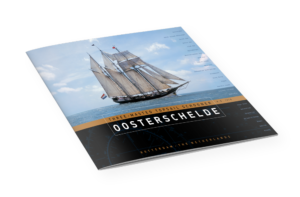19 Dec Meeting the Kelpies
Meeting the Kelpies
19 December 2013
Update by Leonard:
“Our first meeting with the locals was at Saunders Island, the home of patriarch David McPhee and his family of sister, wife and two daughters. On that lonely island he is residing surrounded by sheep dogs, one cat, several thousand sheep, some cattle and lots of rusty vehicles and machines. We counted no less than 16 old and brand new Landrovers. The family is almost self-sufficient and recently also receives added income from bird lovers tourism. Japanese and Americans gladly pay a fortune to arrive at David’s island where they can spy penguins of all sorts, albatrosses and so on. David, his sister and daughters drive them cross-country to container cabins where they can spend the night in relative luxury. When we decided to make the long walk to the rookery at the Neck (at least six hours to and fro) one of the daughters decided to come and fetch us by Landrover when we had not yet returned by five o’clock. Much appreciated by all of us, with the exception of Ivo who could have continued his walk home. David is now walking in my Crocs, which he seemed to like. Every week or so a little plane arrives from Stanley to bring mail, food and tourists or to take the Mac Phees to Stanley, the metropolis of the Falkland Islands.
Because we moored at Stanley almost a week ago we have got to know some Kelpies, as the local inhabitants call themselves. Talking to the natives is less easy than one might imagine. The friendly ladies of the coffee shop of the West Store where we anchor every day are from the island of St Helena so they cannot be considered to be native people. They come to the Falklands on one-year contracts. On the street people don’t greet each other, which is to say in the rare case you meet somebody walking. Most people drive around in a Landrover or four-wheels even if they have to cover a distance of fifty meters. Consequently the people one meets in the street are mostly soldiers or visitors from abroad.
Nonetheless I already got to know Kathy on the first afternoon in Stanley. We happened to walk past her home along Ross Road on the way to the museum further down the road along the bay. Under the flagpole flying the British flag she was planting some flowers in her little front garden. When I asked this friendly grandma where the launderette was, she answered: “Just hand it to me love and come back after three. The laundry of the Victoria bar comes first”. When I returned, later that afternoon with a bag of muffins -they don’t sell flowers here- Kathy invited me to come in and have a cup of tea. Talking about her children she mentioned that her son is studying in England: “The government pays everything!” The Falkland education system is indeed very well organised. Over the past days we regularly met Kathy with her husband at the Victoria bar.
Olav has already mentioned Patrick Watts, the now 71-year-old reporter of Falkland Radio, a man who knows everything about sport. He has taken us on all kinds of outings in his four-wheel drive. He happens to be married to a Dutch girl from Brabant and spends half of the year with her in Den Bosch and the other half (the Falkland summer) in Stanley. This friendly chap seems to know everything about Dutch soccer and is a personal friend of his Dutch TV colleague Tom Egbers.
On Saturday David, Marino and I watched the local pantomime show Cinderella‚ in the town hall. Pantomime presentations are very popular in England but why they bear that name I don’t get, because these rowdy affairs have nothing to do with the pantomime à la Marcel Marceau. They are amateur dramatics with lots of singing, pink children doing a ballet performance around Cinderella in the forest, and spectators who are feeling very involved in the drama and loudly shout Boooooh! whenever stepmother appears, or “She is in the cupboard”‚ when the Prince is looking for Cinderella. We also saw Jimbo with his funny cap and penguin on his shoulder talking to the Governor on the first row. The latter will probably have thought that he was part of the cast; Governor Nigel Haywood, a typical Oxbridge chap in tweed, did not just happen to sit there. His role was to faultlessly perform ‘my hat has three corners’ with all the gestures that come with it.
During the Sunday morning service at the Christ Church Cathedral‚ a lady who recognised me from the Cinderella performance pulled me over. It is a lovely little fin de siècle church with stained window, flags and plaquettes in memory of heroes and lamented ancestors. In the absence of an organist that morning the Reverend Richard Hines conjured some organ music from a tape recorder but the singing went lustily nonetheless. During the sermon reverend Hynes mentioned the birthdays of two persons present and in between the psalms two happy birthdays were sung. In the evening there was another ecumenical service, nine lessons and Carols at Christmas. Consequently Leo, Arie, Jimbo and I visited the church another time to sing with the locals ‘Oh come, all ye faithful, Hark!’, ‘The herald-angels sing, while shepherds watched’ and much more. Lo and behold! The governor again participated in the show, this time with his wife, daughter and a few others performing a Corelli sonata on recorders! Afterwards we met Dutch biologist Joost Pompe who is married to a local belle and has been living on the island already for 25 years. He discerns himself from the other islanders by driving around in a red 1965 Ford Corsair and a much older Morris Minor, which he has both restored himself.
During the last few days we were moored with the ‘Europa’ and ‘Tecla’ at a quay three kilometres from Stanley. There we met, at the Seaman’s house, Betty Turner of the Lighthouse Seamen’s Centre Trust.
“I am of the generation that lived to leave”‚ said sixty-year-old Betty and continued:
“I spent 35 years in England raising a family but was always homesick. Most of us have actually come back. Five years ago I brought my English husband for a visit and we never went back since. I am taking care here of people from all over the world: merchant seafarers, yachties, and a lot of fishermen from Indonesia and Peru. We have a large communication problem with the Indonesians. Their priority is to contact their family by internet and to collect lots of second-hand clothing because the poor chaps come always inadequately clothed. I try to offer a home from home. So many visitors here on my little island! I travel metaphorically speaking all over the world. And what I love mos
t is visiting the ships. Since the war of 1982 life has changed thanks to fishery, oil and tourism. People come on contracts and decide to stay. The people of the older generation find that change quite difficult. You hear them complaining in public meetings we don’t want to loose the simple way of life. We islanders are resilient. Looking after ourselves we are independent and interdependent. But what can I say? You can’t stop progress. Or should I perhaps say change?”
Before we left, Cathy left herself by Landrover to take a few days off in her caravan far away from the maddening crowd of Stanley.”





